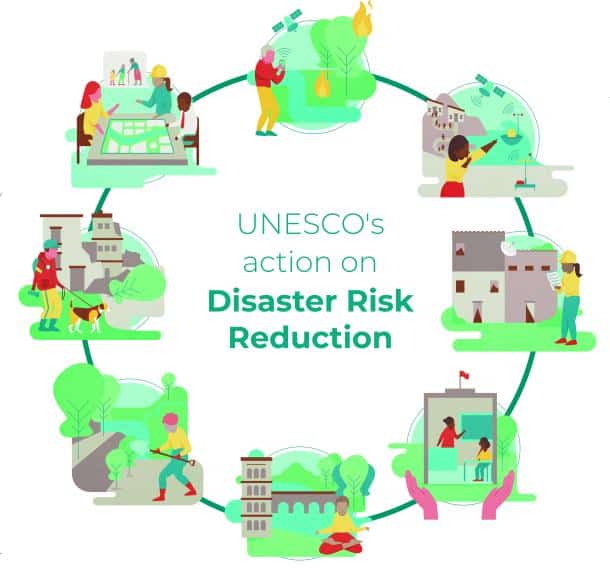Disaster Risk Reduction Must Be Central to Global Efforts

UN Deputy Secretary-General Amina Mohammed addressed the opening ceremony of the eighth Global Platform for Disaster Risk Reduction in Geneva, Switzerland, emphasizing the urgent need for action in the face of escalating climate challenges. She commended Switzerland for hosting the event and highlighted the importance of early warning systems in disaster management. Mohammed’s remarks underscored the critical intersection of climate change and disaster risk, calling for a collective commitment to resilience and sustainable development as the world approaches the 2030 agenda.
Urgency Amidst Global Challenges
During her speech, Amina Mohammed expressed a profound sense of urgency regarding the current state of global disaster risk management. She noted that the Global Platform for Disaster Risk Reduction is convening at a pivotal moment, where geopolitical tensions and climate change are increasingly intertwined. Reflecting on her recent experience at the High-level International Conference for Glaciers’ Preservation in Tajikistan, she highlighted the alarming impact of climate change on glaciers, which are vital to water ecosystems. The conference called for immediate action to protect these fragile environments and invest in disaster prevention strategies.
Mohammed also referenced a recent glacier collapse in Blatten, Switzerland, which could have resulted in significant loss of life. Fortunately, early warning systems allowed for timely evacuations, demonstrating their critical role in disaster response. However, she emphasized that while early warnings can save lives, they cannot prevent the irreversible loss of glaciers, which are essential for many communities and ecosystems. The urgency of the situation is underscored by the UN Secretary-General’s Early Warnings for All Initiative, which aims to enhance global preparedness for climate-related shocks.
The Cost of Inaction
The UN Deputy Secretary-General highlighted the staggering economic toll of disasters, which currently amounts to $202 billion annually in direct losses. When considering cascading effects and ecosystem costs, the total exceeds $2.3 trillion each year. These disasters disproportionately affect the world’s most vulnerable nations, including least developed countries and small island states, exacerbating inequities and hindering sustainable development. Middle-income countries also face significant challenges as disasters divert resources away from long-term growth, while even developed nations are not immune to the rising costs of climate-related disasters.
Mohammed pointed out that the Sustainable Development Goals are increasingly at risk, with an annual financing gap exceeding $4 trillion. Protecting development gains from the impacts of disasters is more critical than ever. Despite some progress, such as declining disaster mortality rates and the establishment of disaster risk strategies in many countries, the pace of change is insufficient. The need for immediate action is clear, as every delay results in further human and economic suffering.
Strategies for Resilience
To accelerate the implementation of the Sendai Framework for Disaster Risk Reduction, Mohammed outlined three key actions. First, she urged prioritizing risk-informed development across all sectors. This approach requires integrating resilience into every decision and investment, ensuring that infrastructure and policies do not exacerbate future risks. The upcoming fourth International Conference on Financing for Development presents an opportunity to reform global development finance and address the current debt crisis.
Second, she called for an urgent increase in public and private investments in resilience. Nations must allocate a larger portion of their budgets to disaster risk reduction and create national financing frameworks that align economic development with risk reduction and climate adaptation. Instruments like catastrophe bonds and climate-resilient insurance can facilitate faster recovery and lessen the economic burden on vulnerable communities.
Lastly, Mohammed emphasized the importance of solidarity and cooperation among nations. The interconnected nature of risks necessitates collaborative efforts across geographical and political boundaries. As countries prepare to submit new climate plans, ambitious strategies to reduce emissions and enhance resilience will be crucial in mitigating climate-related disasters. The UN Secretariat is committed to supporting these initiatives and driving change towards a more resilient future.
A Call to Action
In conclusion, Amina Mohammed’s remarks at the Global Platform for Disaster Risk Reduction serve as a clarion call for immediate and decisive action. She stressed that disaster risk reduction must be central to global efforts aimed at creating a safer, more sustainable, and equitable world. The choices made today will significantly impact future generations, and the cost of inaction is already unbearable for many. Mohammed urged all stakeholders—governments, local actors, the private sector, and civil society—to unite in their efforts to build resilience and protect the planet. The time for action is now, and the commitment to disaster risk reduction is not merely an option; it is an imperative for a just and sustainable future.
Observer Voice is the one stop site for National, International news, Sports, Editor’s Choice, Art/culture contents, Quotes and much more. We also cover historical contents. Historical contents includes World History, Indian History, and what happened today. The website also covers Entertainment across the India and World.
Follow Us on Twitter, Instagram, Facebook, & LinkedIn

